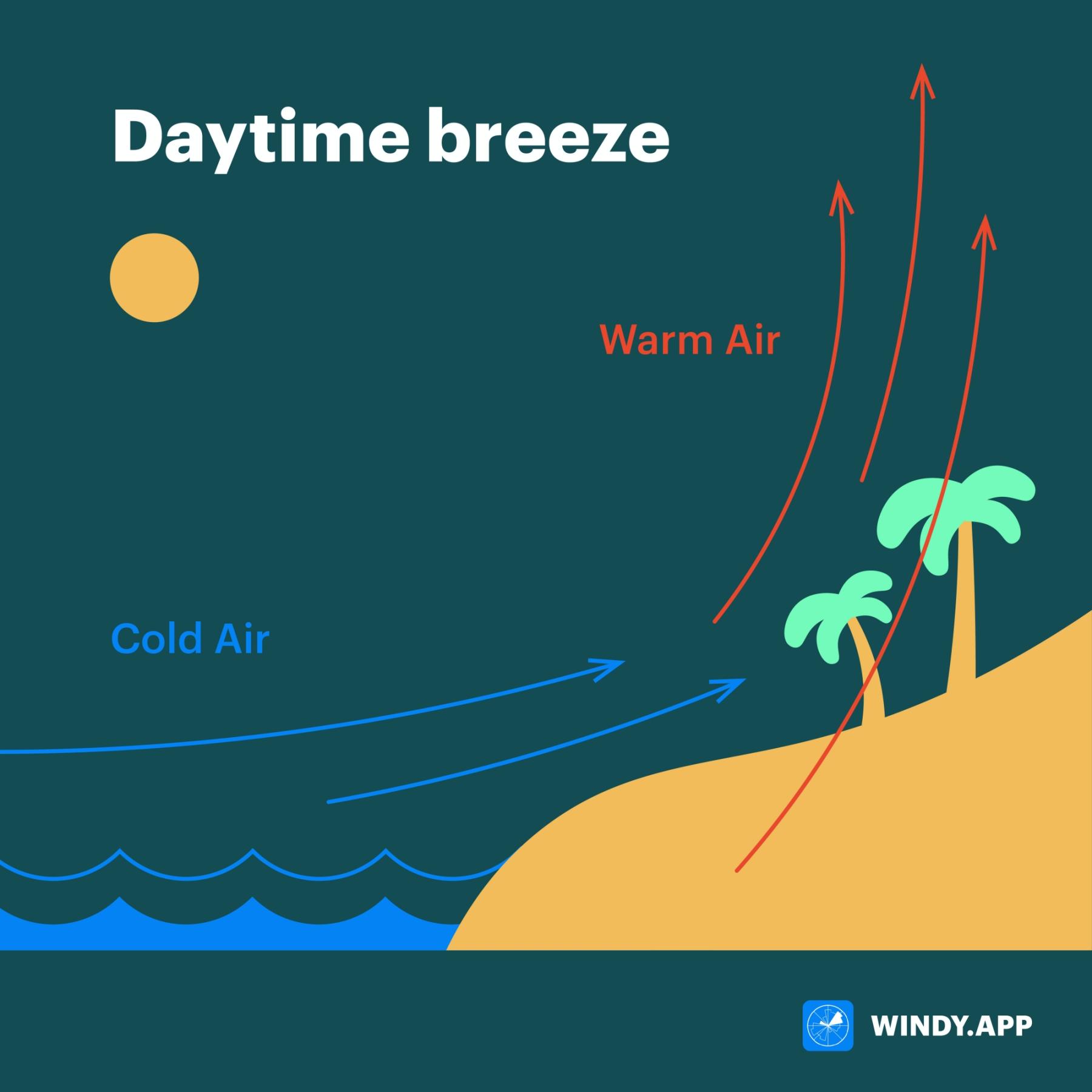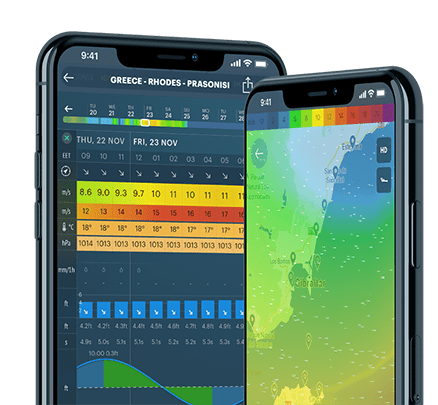
What is breeze wind and how it works
Breeze is a gentle to moderate afternoon wind, caused by warm air rising over the land in sunny weather. In this lesson of the Windy.app Meteorological Textbook (WMT) for better weather forecasting, you will learn more about what is breeze wind and how it works. We will explain this phenomenon using the example of the sea breeze.
What is breeze wind?
In general, a breeze is a light wind, which appears due to temperature difference between two air masses.
Depending on the heating force, the land affects the circulation of the air flow. The more heating up of the land, the greater the temperature difference, the stronger the breeze is.
The air, which warms up above the land, becomes light and rushes up, and cooler air from the sea immediately replaces it. This process lasts all day, as long as there is a stream of heated air over the coast. Such a breeze is called "Daytime breeze" and can be very calm: 1–5 meters per second.
At night, temperature above the land may become cooler than above the water. Then the air flows change their direction and blow from the land towards the sea. This forms the night breeze.

Daytime breeze. Illustration: Valerya Milovanova / Windy.app
However, the breeze occurs not only at sea, but also in the city and in the woods.
City breeze
City breezes appear in cities due to the heating of buildings by sunlight, which creates a difference in air temperature outside the city and in it. The difference can reach 8 degrees. This is enough for the cooled air to move from the suburban areas towards the city.
Depending on the layout of the streets, this process can cause an increase in the wind. Most often, the air flows through wider streets. In contrast to sea or forest breezes, city breeze moves around the clock.
Forest breeze
The temperature of large forests during the day is lower than in the fields next to them. This is because most of the solar energy is spent on the evaporation of moisture from the leaves. Because of this, during the day, a gentle wind moves from the cold forest towards the field.
Text: Windy.app
Illustration: Valerya Milovanova, an illustrator with a degree from the British Higher School of Art and Design (BHSAD) of Universal University
Cover photo: Flipboard / Unsplash
You will also find useful
What is dew point temperature in simple words
What you need to know about precipitation
Latest News
Professional Weather App
Get a detailed online 10 day weather forecast, live worldwide wind map and local weather reports from the most accurate weather models.
Compare spot conditions, ask locals in the app chat, discover meteo lessons, and share your experience in our Windy.app Community.
Be sure with Windy.app.



